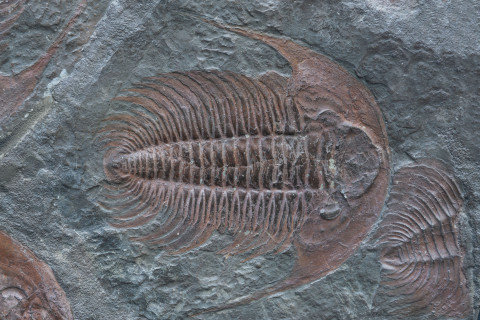EOSC 326 · Earth and Life Through Time

The fossil record of adaptation and extinction emphasizing the interaction of biological and geological processes. Not for credit in Geological Sciences and Geophysics specializations.
Syllabus
EOSC 326 is offered as both an In-Person (Face-to-Face) and a Hybrid (mostly Distance Learning) course. These two courses have the same Course Learning Goals and acquired skills although some of the specific content differs.
Delivery: The In-Person course includes regular lectures and assessments at UBC, Vancouver. In contrast, the Hybrid course has no in-person lectures or in-person term assessments. All term content and term assessments are taken online. This means the Hybrid course can be taken from anywhere with reliable internet.
*Note that both the In-Person and Hybrid courses have a paper Final Exam that is taken in person at UBC, Vancouver, during the regular exam period. There is no option to take the Final Exam remotely for either course.
Complete Syllabus for both Hybrid (Mostly Distance Learning) and In-Person (Face-to-Face) Courses: CLICK HERE
Hybrid and In-Person Course Learning Goals and Skills
The overriding Learning Goals of this course are to give you the knowledge to...
- Express how the concept of geological time is an important factor in our understanding of the evolution of the Earth System.
- Apply basic geological principles and geoscience knowledge in the interpretation of Earth's geological and biological history.
- Describe how components of the biosphere have adapted to exploit various environments over time.
Beyond content learning goals, this course aims to develop skills that will spread beyond the context of Earth Science. Specifically you will...
- Continue to acquire critical thinking skills by learning to carefully consider the scientific evidence behind a theory.
- Learn key concepts about the physical universe that equip you to understand the new scientific discoveries that will be made in the years after you graduate.
- Recognize the links among the various components of the "Earth System" and their relevance to real-world problems of concern such as climate change.
Course Content
See the Course Syllabus for each of the 'in person' and 'hybrid' courses attached at the link above for details.